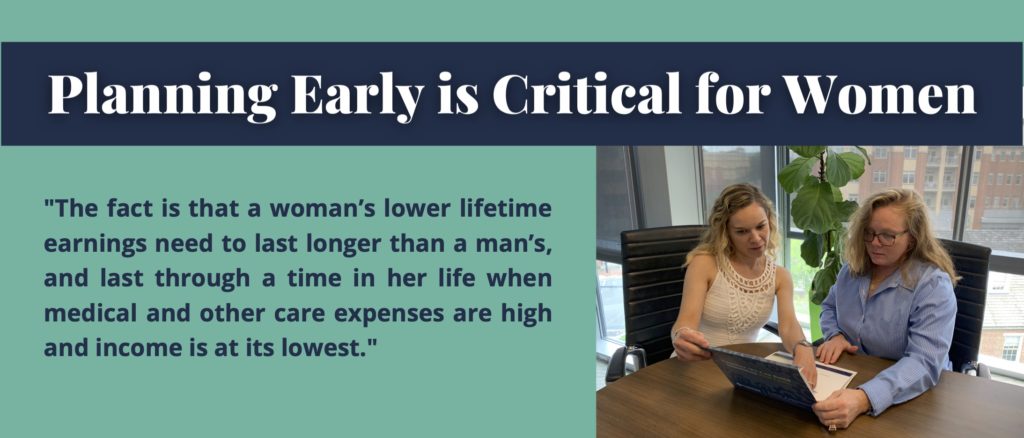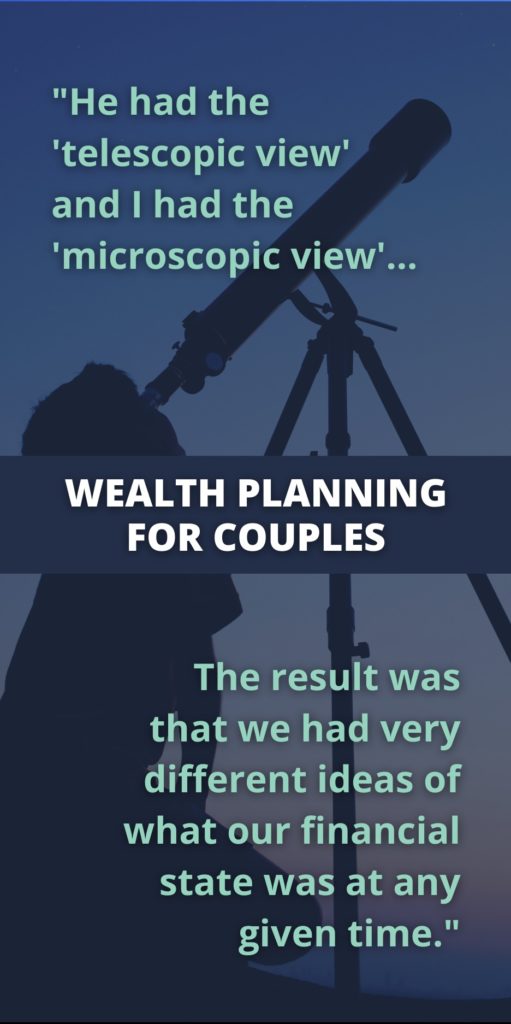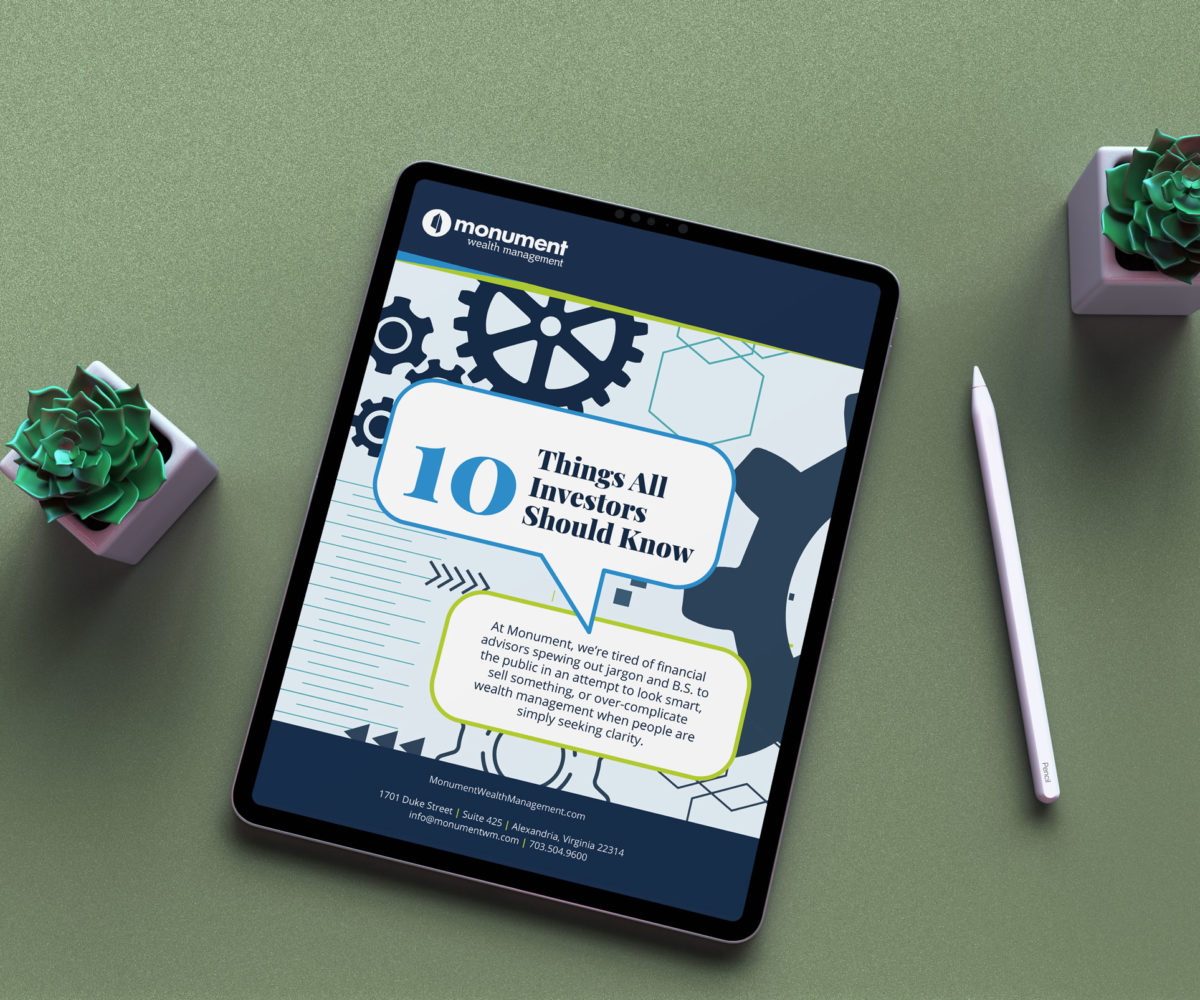Monument Wealth Management Articles
Financial Planning for Women – What You Need to Know and Why You Should Start NOW

Share on your favorite platform, or by email
Women do so much…I know from firsthand experience, because I’m a woman and I feel like I do a lot, if I do say so myself!
When I was in my 20s, I traveled and worked thousands of hours with a Big 5 consulting firm, got married, and bought a house.
I socked money away in my 401k and that was the extent of my financial planning.
 When I was in my 30s, I had children and dogs and cats and did a whole different kind of work, much of it unpaid. I managed doctors’ appointments, school schedules, sports, carpools, bills, food, clothing, social events, teaching kids to drive, community volunteer work, occasional part-time work here and there… I’m tired just typing this. And you can bet that women who do all these things while working full-time and/or are single mothers are even more tired.
When I was in my 30s, I had children and dogs and cats and did a whole different kind of work, much of it unpaid. I managed doctors’ appointments, school schedules, sports, carpools, bills, food, clothing, social events, teaching kids to drive, community volunteer work, occasional part-time work here and there… I’m tired just typing this. And you can bet that women who do all these things while working full-time and/or are single mothers are even more tired.
My husband, Bill, and I divided up as much as we could. Money-wise, he took care of the long-term investments (he had the sole income at that point) and I dealt with the day-to-day expenditures. This worked for a while, but I had a lot of questions.
I didn’t know how I should be saving specifically for my retirement since I no longer had an income. When could we retire? Would we have enough to live on? Would the kids and I have enough to live on if something happened to Bill? Would I have to eat cat food in my old age? I hoped not because cat food smells bad and is actually kind of expensive. I didn’t have any real way to answer these questions and was very busy, so I just kept forging ahead with life.

Time marched on, the kids got older and headed off to college while I traded up to a career at Monument. You’d think life would be simpler with more income and fewer people at home, but somehow it hasn’t been.
My parents need more help, we have to think more concretely about retirement, our estate documents need updating, we’re navigating the college application process (two down, one to go!). And it turns out that young adult children can still use help from Mom and Dad for a lot of grown-up things like figuring out property leases, car maintenance, learning to be responsible for their own healthcare, buying insurance, and finding solid employment in times of Covid.
The financial questions in the back of my mind were still smoldering and finally, during this roller-coaster of life, my work at Monument spurred me to prioritize them and ACT. Here are some of the most important things I’ve learned about financial planning for women:
Why is Financial Planning for Women Different from Men?
Women have different financial planning needs from men–needs that demand attention early. With so much going on in the normal life of a woman, it’s easy to put others first and your own financial future on the back burner (I did this), but it really needs to be upfront with the flame turned up.
Financial planners and wealth advisors say they tailor their plans and advice to their individual clients, but 80% of financial planners are men. Do they really know how women’s financial planning needs differ from those of men? And are they doing anything about it? Maybe. Or maybe not. Here are some key financial planning considerations that apply specifically to women:
- According to a study by the National Institute on Retirement Security, women earn less over their lifetime due to the gender pay gap and taking time off to care for family members, often during their peak earning years. Even when men take time off to care for family, the economic hit is less than it is for women.
- Women are more likely to have student loans than men because more women go to college and their lower earnings make repayment take longer.
- Women live longer than men, just over 5 years longer on average. Because women live longer, they generally have higher medical expenses than men and are more likely to need long-term care.
- Married women are likely to provide end-of-life care for spouses. Spousal caregiving has the greatest detrimental risk on retirement income of all caregiving.
Bringing this all together — The fact is that a woman’s lower lifetime earnings need to last longer than a man’s, and last through a time in her life when medical and other care expenses are high and income is at its lowest. Planning early is critical.

What’s Special About Women Investors?
I just painted an urgent and scary picture here, but women investors have some real strengths to bear on their financial futures. Even though they tend not to be confident in their financial and investing knowledge, women’s portfolios generally perform better than men’s. A Fidelity Investments survey in 2017 found that only 9% of the women surveyed thought their investments would outperform a man’s, but a review of over 8 million Fidelity clients shows the opposite is true!
Here’s why:
- Women look beyond pure portfolio performance and consider longer-term goals for themselves or their families.
- Women are less impulsive and tend to buy and hold a diverse portfolio, while men are more likely to hold equities and actively trade them. Even though the performance difference is slight, at 0.4%, it makes a big impact over the long-term.
- Women take less risk, using target date funds and holding greater amounts of cash than men do.
- Women tend to save a higher percentage of their income than men, both in workplace plans and accounts outside the workplace.
And what is the why behind these findings? Some people may see these characteristics as “inherently female”…I don’t know whether or not that’s true, but it does seem to line up with my anecdotal experience.
What Can Hold Women Back When it Comes to Investing
While women have some strengths as investors, a lack of confidence in her investing and financial skills can result in:
- Hesitating to invest – having that emergency fund is great! Keeping cash above and beyond what you need is taking a strength too far and instead means missing out on potential growth – growth that can go a long way in supporting longer lifespans and higher future care costs.
- Hesitating to ask for help – According to Fidelity’s survey, women don’t seek advice because they feel they do not have enough money to make it worth working with a professional, because they don’t know where to start, or just haven’t made it a priority.

I really felt all of this when I was younger. On the one hand, I felt that because I have a degree in business (although not in Finance) that I should already be knowledgeable and comfortable making investment decisions. But I wasn’t, and I felt embarrassed at my lack of confidence which made it harder to seek advice.
For many years, my husband and I had a logical division of financial labor, but neither of us was all that engaged in what the other was doing due to time constraints. The result was that we had very different ideas of what our financial state was at any given time. He had the “telescopic view”, and I had the “microscopic view”…and those views do not look the same! The thought of retirement with no salary or, worse, losing my husband, was a huge source of stress for me while he did not feel stressed at all.
I knew we needed a professional wealth advisor to work with us, but I didn’t know how to find someone good, and I was too busy to figure it out. Not taking action made me feel worse. Does any of this sound familiar to you? I am willing to bet there are many women who feel this way.
What You Can Do Now to Plan for Your Financial Future
I went to work at a wealth management firm which gave me time and a reason to educate myself specifically on financial planning for women, but this is not a real solution for most women. How can you, as a woman, write a successful financial future for yourself? Even if you feel it’s too late to start “early”?
- No one is born knowing about finance so commit to taking a few steps to build your financial literacy Right Now. There is no shortage of books on the subject, and our website has a resources area with our blog, podcasts and other articles on all kinds of topics including women and finances. Educating yourself will make it easier to know what questions to ask of any advisor you choose to work with.
- Be involved. Even if you do not feel 100% confident as an investor, do not pass your financial decisions off to your spouse or someone else. Otherwise, your wellbeing is at risk during life transitions like marriage, divorce, or death of a partner. Stay engaged the way you would if you were making decisions on behalf of your child or other loved one. You need and deserve this kind of attention.
- Set goals. What do you want your life to look like down the road? Do you have children to educate? Do you want to pay off your mortgage? Travel? Downsize and relocate? Are there other family members to take care of? Knowing what your money is for is the first step towards a plan.
- Figure out what you have. What do you own? What savings and investment accounts do you have? How much do you owe? You will need this information to figure out how you are doing against your financial goals.
- Find a trusted advisor. Look for a financial advisor who provides advice, not just asset management. At Monument, we take a collaborative approach with clients to turn diverse opinions, resources, and ideas into a plan representing the life YOU want to live. It’s never just about managing assets. And it’s about removing hassle and stress so you have time and brain-space for the rest of your life. Start here to learn the most important questions to ask in assessing a financial advisor.
I have seen firsthand, both as an employee and as a client, how Monument’s unfiltered opinions and straightforward advice provide clarity and a sense of security. This feeling of security comes not from predicting the future but from knowing there’s a solid plan in place, customized to my needs as a woman and our family’s specific goals. It is a relief to know my husband and I are working with a team committed to keeping us on track with our plan, managing our money to a comfortable level of risk, efficiently, and serving our best interests.
Take a step toward creating your financial future now. Find out more about Monument Wealth Management and reach out to us. Even if your situation isn’t a match for our team, we can still help you. We have a network of advisors we know personally who operate under the same philosophy we do but who serve different clients. It is time to get started!

Get Started with our list of “10 Things All Investors Should Know”
Ready for straightforward, unfiltered opinion and tailored advice for YOUR questions, not everyone else’s?
Recent Awards & Press
By Monument Wealth Management Team
IMPORTANT DISCLOSURE INFORMATION
Please remember that past performance is no guarantee of future results. Different types of investments involve varying degrees of risk, and there can be no assurance that the future performance of any specific investment, investment strategy, or product (including the investments and/or investment strategies recommended or undertaken by Monument Capital Management, LLC [“Monument”]), or any non-investment related content, made reference to directly or indirectly in this blog will be profitable, equal any corresponding indicated historical performance level(s), be suitable for your portfolio or individual situation, or prove successful. Due to various factors, including changing market conditions and/or applicable laws, the content may no longer be reflective of current opinions or positions. Moreover, you should not assume that any discussion or information contained in this blog serves as the receipt of, or as a substitute for, personalized investment advice from Monument. To the extent that a reader has any questions regarding the applicability of any specific issue discussed above to his/her individual situation, he/she is encouraged to consult with the professional advisor of his/her choosing. No amount of prior experience or success should be construed that a certain level of results or satisfaction will be achieved if Monument is engaged, or continues to be engaged, to provide investment advisory services. Monument is neither a law firm nor a certified public accounting firm and no portion of the blog content should be construed as legal or accounting advice.
A copy of Monument’s current written disclosure Brochure discussing our advisory services and fees is available for review upon request or at www.monumentwealthmanagement.com/disclosures. Please Note: Monument does not make any representations or warranties as to the accuracy, timeliness, suitability, completeness, or relevance of any information prepared by any unaffiliated third party, whether linked to Monument’s website or blog or incorporated herein, and takes no responsibility for any such content. All such information is provided solely for convenience purposes only and all users thereof should be guided accordingly.
Historical performance results for investment indices, benchmarks, and/or categories have been provided for general informational/comparison purposes only, and generally do not reflect the deduction of transaction and/or custodial charges, the deduction of an investment management fee, nor the impact of taxes, the incurrence of which would have the effect of decreasing historical performance results. It should not be assumed that your Monument account holdings correspond directly to any comparative indices or categories. Please Also Note: (1) performance results do not reflect the impact of taxes; (2) comparative benchmarks/indices may be more or less volatile than your Monument accounts; and, (3) a description of each comparative benchmark/index is available upon request.
Please Remember: If you are a Monument client, please contact Monument, in writing, if there are any changes in your personal/financial situation or investment objectives for the purpose of reviewing/evaluating/revising our previous recommendations and/or services, or if you would like to impose, add, or to modify any reasonable restrictions to our investment advisory services. Unless, and until, you notify us, in writing, to the contrary, we shall continue to provide services as we do currently. Please Also Remember to advise us if you have not been receiving account statements (at least quarterly) from the account custodian.
